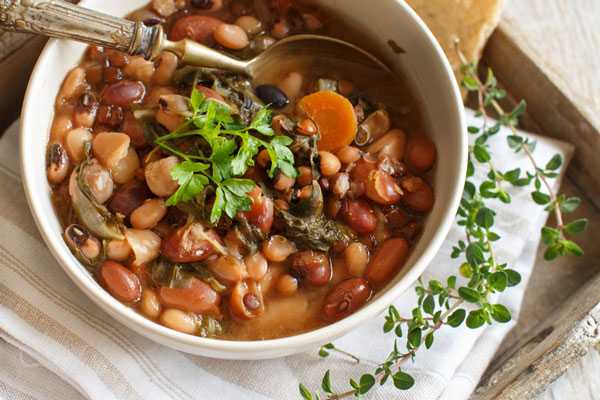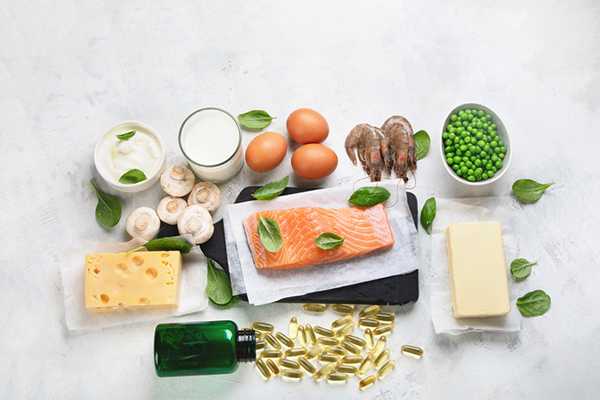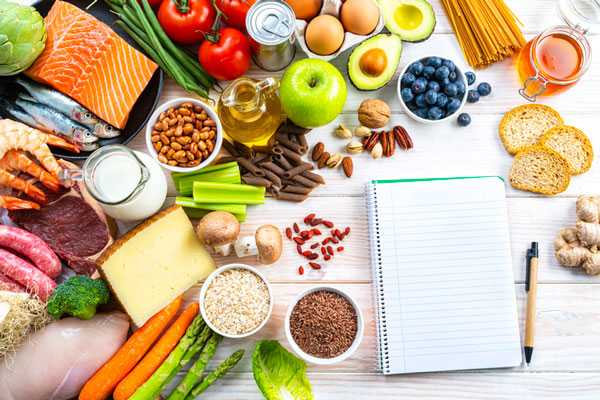Stay healthy this winter
Tirlán’s Senior Nutrition Manager, Lorraine Moran, on why healthy eating offers good protection during the chilly season
Luckily, working for Tirlán, we have a wealth of knowledge in our business which can help us all learn how to eat healthily this winter. For some top tips and advice, Overherd at Tirlán caught up with Lorraine Moran, a Registered Dietitian and Tirlán’s Senior Nutrition Manager based at our Innovation Centre in Ballyragget.

Lorraine Moran, Senior Nutrition Manager, Tirlán
“Winter is an important time of year to keep ourselves well-nourished, as the colder weather tends to bring cold and flu season. Eating a healthy diet might not prevent us from picking up these illnesses, but it can help maintain our immune system to better protect us and if we do get sick, a nutritious diet can help speed up our recovery. I’m delighted to share some top tips with colleagues on healthy eating this winter,” said Lorraine.
It’s time to swap salads for soups and stews!
Winter is the season for colds and flus, so trying to ensure we have a large range and amount of fruits and vegetables in our diet can help us get an adequate level of vitamins and minerals to help support our immune system. “While nothing can completely stop a cold in its tracks, a healthy immune system can help ward off the germs that cause colds and flu or decrease duration of illness,” says Dietitian Lorraine.
It is also important to remember that there are no single foods or specific diets that will ‘boost’ our immunity. The nutrients that keep our immune system working well include Vitamins A, B6, B12, C and D as well as copper, folate, iron, selenium and zinc. Instead, focus on getting these nutrients from a healthy, varied diet including fruits and vegetables, nuts and seeds, wholegrains, dairy products or fortified alternatives and meat, fish or plant proteins like pulses. Hot bowls of soups, stews and casseroles are ideal ways to include these foods during the cold winter months!

Keep up your Vitamin D
Though we can make Vitamin D from sunlight during the summer months, we do not make enough Vitamin D during the winter months. There are only a few foods that are sources of Vitamin D such as oily fish (e.g. salmon, sardines, mackerel), red meat and egg yolks. Choosing fortified foods such as Avonmore SuperMilk and fortified breakfasts are helpful to boost our Vitamin D on a daily basis. There is also the option to choose a Vitamin D supplement from a pharmacy. They are available as a tablet, including a chewable tablet and a tablet that dissolves in your mouth. There are different amounts of Vitamin D doses for different people during the winter months; e.g. children aged 1 – 4 years need 5 (μg) micrograms of Vitamin D daily and adults and children over 4 years old should take 10 (μg) micrograms of Vitamin D daily.

Be prepared
The cold weather can make getting out and about less appealing. However, there are still ways that you can look after your diet and your health. Planning weekly meals and making a grocery list can help us navigate the supermarket aisles with ease, serve as a guide to limiting impulse purchases and structures meals and eating habits. If healthy ingredients are in our homes, we are likely to use them than reach for unhealthy fast foods. It is also useful to keep a supply of non-perishable versatile foods to hand. For example, porridge oats, tins of tomatoes, dried or tinned beans and frozen vegetables are an affordable, healthy way to make meals more filling and nourishing.

Keep well hydrated
“Hydration in winter is equally as important as it is in the warmer months to help keep energy levels stable, prevent skin from drying out and support a healthy immune system. Thirst is a sign that we are already dehydrated,” Lorraine states.
The best way to stay hydrated is to drink water steadily throughout the day. Water and milk are recommended as healthy drinks, though it can be more challenging to drink cold water from the tap, especially on cold winter days. Warm herbal teas or hot water with a squeeze of lemon or orange might be more appealing. Some foods contain higher amounts of fluids than others. Increasing our intakes of fruit and vegetables such as cucumber, tomato, grapes and berries and choosing warm soups and broths also increase our fluid intake.








